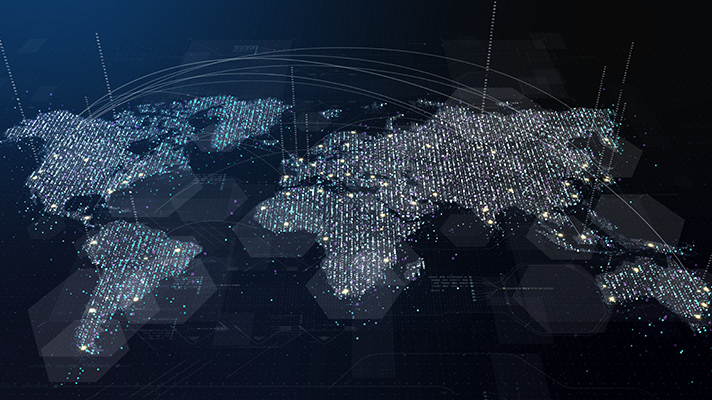
Global health leaders discussed the challenges of climate change and widening inequality during the closing keynote sssion, ‘Climate Change, Social Determinants of Health: Leading Recovery and Preparing for the Future’.
The speakers were Prof Jan Semenza, lead of the Health Determinants Programme, European Centre for Disease Prevention and Control (ECDC) in Sweden, Professor Prof Sam Shah, founder & director, Faculty of Future Health in the UK, Dr Hans Kluge, regional director for Europe, WHO in Denmark and Hal Wolf, president and CEO, HIMSS, US.
WHY IT MATTERS
HIMSS20 Digital
It is predicted that climate change will cause around 250,000 additional annual deaths between 2030 and 2050. The combined effect of climate change, and increasing inequality, could lead to a more divided world. This could exacerbate the impact of social and environmental determinants of health, for example, clean air; safe drinking water; sufficient quantity and quality of food; secure shelter; and access to quality health and care services.
ON THE RECORD
Professor Jan Semenza said climate change would impact health: “Extreme weather events such as heat or rising sea levels are modulated by a number of vulnerabilities, or factors, such as the human capital in the human population, social capital, financial capital, fiscal capital and natural capital. Exposure can cause injuries, fatalities, drownings, heat- related mortality, morbidity, displacement: a whole slew of different kinds of risks”.
Semenza said a Matched Case Control Study was carried out between 1992 and 2012 in Denmark, Finland, Norway and Sweden to determine whether excess precipitation could mobilise and transport pathogens, leading to water-borne outbreaks. This showed there was an association between heavy precipitation events and water-borne outbreaks.
Dr Hans Kluge, WHO, said: “The relationship between health and economic development and social cohesion, is linked to climate change. An economy of wellbeing is a fair and environmentally friendly society where everyone has his social safety protector and where health does not put on an economic burden but is a job creator.
What citizens legitimately, and reasonably, expect from the health authorities is to guarantee the fundamental right to universal health coverage. But for that you need solidarity. If solidarity does not come from the heart, it should come from the brain because no-one is safe until everyone is safe”.
Hal Wolf, HIMSS, said: “The stark realisation from COVID-19 is that borders have nothing to with the spread of disease and no-one is safe until everyone is safe. We do not understand how to bring the most basic healthcare and the most basic service to each and every village, and every country, around the world. We are going to continue to create vulnerabilities that will start someplace else, spread across the borders and really put everyone in jeopardy, so this idea that strong economies will remain strong and invulnerable to the hardships of individuals, who don’t have the same capabilities, or luxuries, just isn’t true.”
He said digital health might help: “It is one of the big equalisers. We will face shortages of primary care physicians and clinicians so we have to create, through digital health, some of those equalisers, which can spread all the way down to the most basic phone in the most basic village and that’s a positive step forward.“
Professor Sam Shah, faculty of Future Health in the UK also recognised the potential impact of digital to help citizens access services. However, he questioned whether the right technology was reaching the right people but concluded that the digital divide was “probably just a transitory state”.
However, he warned that wider society was becoming increasingly divided: “COVID-19, if anything, has exacerbated, highlighted and exposed the widening of inequalities in society; the gap between those who have and those who have not. The results of this are very different, in everything from life expectancy, outcomes and access to services.”
Shah said that climate change could cause a range of problems such as respiratory illness, cardiovascular disease, injuries, and premature death. He also believed it would have an impact on mental health and wellbeing. He said the wider social determinants of health, such as education, employment and housing, could significantly affect health, particularly mental health.
Access sessions from the HIMSS & Health 2.0 European Digital Conference ‘On Demand’ and find all the latest news and deveopments from the event here.
